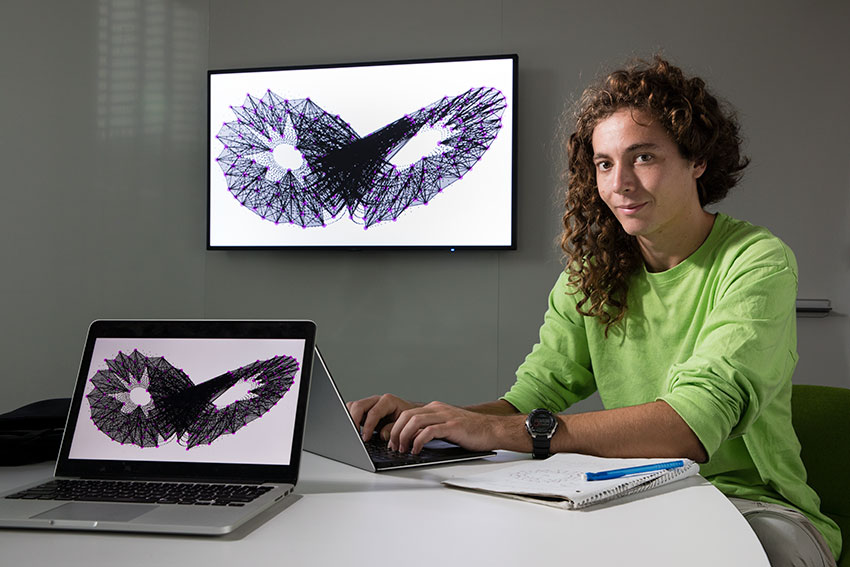
Jamie Tucker-Foltz ’19 will head to the University of Cambridge this fall to study computer science as Amherst College’s latest recipient of a Churchill Scholarship.
The Churchill Foundation announced today that Tucker-Foltz is one of 16 scholarship recipients for 2019. Amherst is the only small liberal arts college represented.
Tucker-Foltz, who graduates in May with a degree in computer science and mathematics, is the 10th Amherst student to receive this award. The most recent before him was Christopher Finch ’14. Others include Jessica Wolpaw Reyes ’94, now a professor of economics at the College, and Kipp Weiskopf ’07, now a physician and cancer researcher at the Dana-Farber Cancer Institute.
Tucker-Foltz will pursue an M.Phil. in advanced computer science at Cambridge. He said he is particularly interested in exploring the study of programming languages, logic and mathematical models.
“I am excited by the opportunity to study and research foundational subjects at the intersection of computer science and mathematics, which have long been deep interests,” he writes in his application.
The Churchill Scholarship Program enables a select group of U.S. students to do graduate work in engineering, mathematics and the physical and natural sciences at the University of Cambridge in England while residing at Churchill College. The scholarship, worth roughly $60,000, covers college fees and provides a living allowance, including travel expenses. Churchill Scholarships are offered annually by the Winston Churchill Foundation of the United States, which was established in 1959 to encourage the exchange of knowledge and sharing of ideas in science and technology between the United States and Great Britain.
Tucker-Foltz began college intent on pursuing pure mathematics in graduate school. “Gradually,” he writes in his application, “I came to see that the mathematical topics I found most exciting—the ones that would keep me up at night—were those most closely related to [computer science].”
In theoretical computer science, he found a field of study that “accepts that some kinds of problems cannot be reduced to simpler ones, and instead explores their complexity, attempting to determine exactly what about a problem makes it so ‘hard,’” he says.
A native of Boulder, Colo., he returned there during the summers of 2016 and 2017 to assist and collaborate on research projects at the University of Colorado.
In a first-year economics course at Amherst, he pursued an interest in game theory, a blend of mathematics and economics that studies strategic interactions. The following summer, he attended the Games 2016, the 5th World Congress of the Game Theory Society, in Maastricht, Netherlands, and in 2017 he was accepted to the 28th Jerusalem School in Economic Theory at the Israel Institute for Advanced Studies.
Last summer, Tucker-Foltz interned in software engineering at Google, presented a paper at the 2018 International Conference on Game Theory at Stony Brook University, and attended the 34th International Symposium on Computational Geometry in Budapest, Hungary, where he presented a paper in theoretical computer science.
“I find game theory a thrilling topic for the same reason I enjoy other, more foundational topics in theoretical computer science: the mathematical problems that arise are the most subtly complicated of any I know,” he says.
Tucker-Foltz is a Schupf Scholar, member of Amherst’s volleyball team and has headed up clubs devoted to strategic board games and juggling.